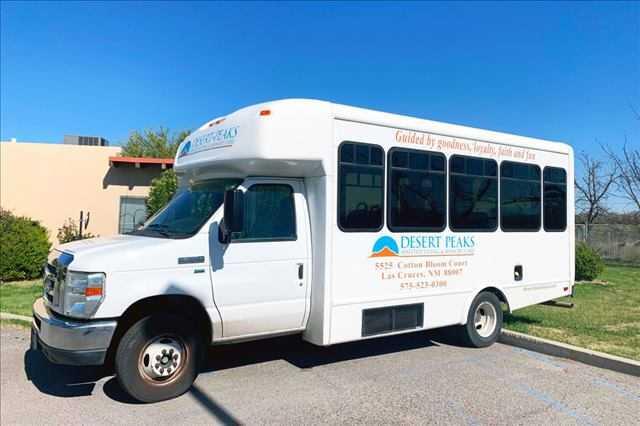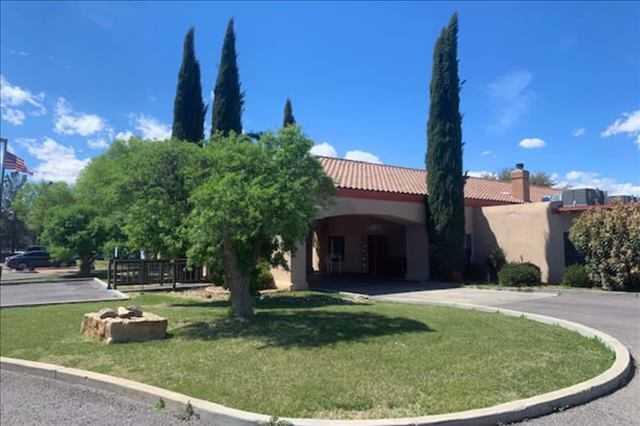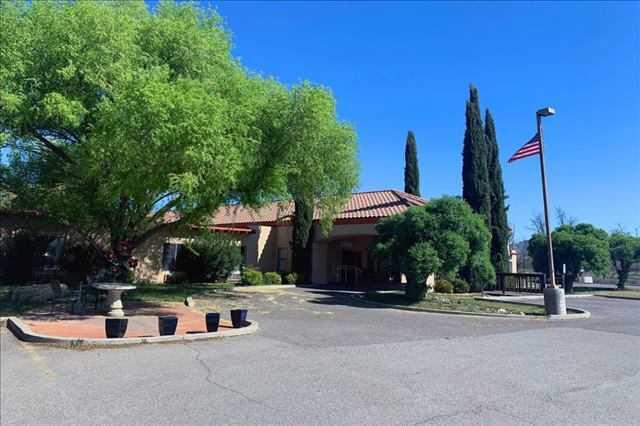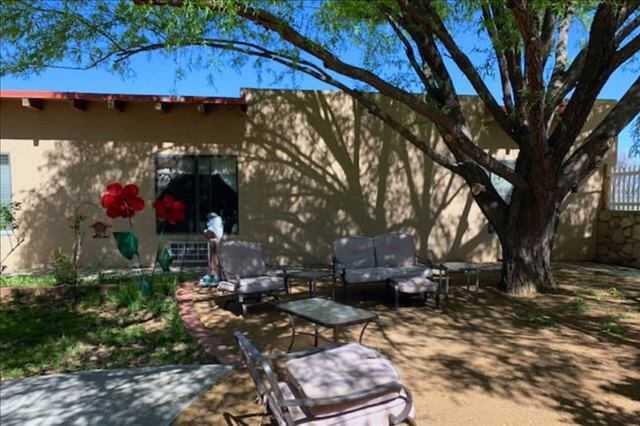Desert Peaks Assisted Living & Memory Care
Las Cruces, NM - Assisted Living, Memory Care
Community size: Large (26-100)
Desert Peaks Assisted Living & Memory Care is a desirable assisted living community in Las Cruces, New Mexico. It is within wonderful Dona Ana County which is part of the Land of Enchantment.
We provide assisted living and memory care services on one campus. Our wellness services and life enrichment opportunities are designed to maintain or improve the capabilities of each resident – with the emphasis on abilities and support to maintain independence.
Our team believes if you do the right thing, the right things happen, and you will hear a lot of laughter. Our team is guided by goodness, loyalty, faith, and fun. You will notice that this is more than a job for our care team. This is passion and commitment.
What is assisted living? Assisted living, was originally created in the 1980’s as a less expensive, more home-like alternative to the traditional nursing home.
Although regulations vary from state to state, assisted living provides a wide array of services designed to keep an elder as independent as possible, for as long as possible. In most cases, assisted living helps seniors stay more active, social, and engaged in life than they otherwise would be living alone. Not to mention the added security of 24-hour staff, assistance with medications, and communication between healthcare providers.
Benefits of Las Cruces assisted living include:
- Tailoring of services to the individual needs of the elder
- Maintenance of an elder’s lifestyle and connection to the Greater community (assistance with transportation, shopping, recreation, and volunteerism are just a few examples)
- Programs designed to keep an elder active and engaged in life and their surroundings
- Affordable alternative to the high-cost of in-home care and nursing homes
- Extended ‘family’ to care and watch out for the elder’s safety and well-being
- Regular communication with long-distance family members
- Help prevent major disasters that sometimes happen when elders live alone
- Maintaining the ability for home health care workers to assist with nurse-required care such as wound care or injections while living in a home-like environment
Memory care, sometimes referred to as Alzheimer’s care, is typically an assisted living or residential care setting that is designed specifically to care for those with Alzheimer’s or other dementias. Any type of dementia (and there are over 70 known types) requires special care and understanding from the caregiver.
Memory Care settings may provide physical and emotional relief as well as peace of mind for families with a memory-challenged relative. Memory care team members undergo dementia-specific training when learning how to provide assistance services.
Mountain Vistas Neighborhood at Desert Peaks is a more intimate community where residents live as a family unit. Specially-trained care team members are in attendance 24 hours a day. The program is overseen by a Memory Care Coordinator, and the staffing ratios are greater than in a typical assisted living.
Programming includes Validation Therapy to maintain self esteem, and to attend to the basic human needs of each individual. Special attention is paid to nutrition, physical, social, and cognitive stimulation. Our Music Makes Memories program stimulates the limbic brain, and helps each person maintain a sense of self and purpose. Our Tiny Stories project allows us to record the stories we hear each day and capture them in audio recordings. The legacy of each person is maintained. Our goal is to help each individual be the best they can be despite cognitive decline while slowing the progression of impairments.
Our Mountain Vistas Coordinator also provides education and support to families.
Benefits of our Las Cruces memory care include:
- Secured entry to minimize risk of wandering.
- Regular human interaction and programs to engage the memory-challenged individual in daily life, minimizing withdrawal.
- Nutrition and exercise and social stimulation and support.
- Elder well-being monitoring and communication with family and health care providers.
- Freedom from caring for a loved one’s daily needs, so families can focus on spending quality and joyful times with the individual.









